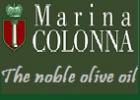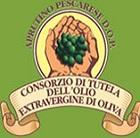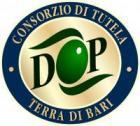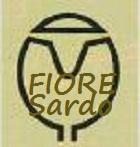
|
||||||||||||||||||||||||||||||||||||||||||||||||
|
||||||||||||||||||||||||||||||||||||||||||||||||
|
|
Ethical purchasing groups
Ethical purchasing groups (not to be confused with "group buying") consists of like-minded individuals that join forces using a number of strategies to secure discounts that might not otherwise achieve on their own. An ethical purchasing group does not simply aim to get the cheapest price, but puts people and the environment before profit. According to trendwatching.com online group buying or “Crowd Clout” is a business opportunity waiting to happen. Crowd Clout is all about co-buying, about consumers revealing their purchasing intentions to make the most of their budget. Some key information regarding group buying is summarized below. •First of all, billions people are now online. We cannot emphasize this mind boggling statistic enough. Whatever web-based business you’re planning to set up, you now have a potential audience. •Secondly, this huge online audience actually shops online. In the US, consumers spent more than USD 200 billion online last year (including travel), while Europeans shelled out EUR 100 billion for online goodies and services. Online sales in Asia are also in the tens of billions USD. (Sources: Forrester, Shop.org and eMarketer.) •Thirdly, as the past few years have seen an all-determining shift from ‘visiting’ to ‘participating’ (if not grouping) in the online world, many consumers may now be up for more active and involved business models like crowd clout, consumers are now both the audience and the participants. What we propose: A model based on the Italian groups GAS. G.A.S. is an acronym for the Italian expression "Gruppi di Acquisto Solidale" (Solidarity Purchasing Groups). Usually, a purchasing group is set up by a number of consumers who cooperate in order to buy food and other commonly used goods directly from the producers or from big retailers at a discounted rate. What's the meaning of the word "Solidale" (Solidarity based): When a purchasing group doesn't search for just for the cheapest price, but instead puts people and environment before profit, the group becomes a solidarity purchasing group. A solidarity purchasing group chooses the products and producers on the basis of respect for the environment and the solidarity between the members of the group, the traders and the producers. Specifically, these guidelines lead to the choice of local products (in order to minimize the environmental impact of the transport), fair-trade goods (in order to respect disadvantaged producers by promoting their human rights, in particular women's, children's and indigenous people’s) and reusable or eco-compatible goods (to promote a sustainable lifestyle). Why are new groups born? Every single G.A.S. has its specific motivation, but usually all groups draw their roots from a critical approach to today's global economic model and lifestyle of consumerism; individuals that feel the unfairness in this model and are searching for a practical alternative can find reciprocal aid and advice by joining solidarity purchasing groups. How does a new group grows? Usually when some friends develop a tendency toward a less consumerist way of life, the idea of undertaking shared purchases initiatives is quite natural. When the idea becomes more concrete, a fair amount of effort is needed for the search of some local producer that meets the solidarity criteria; the next step is the establishment of an internal structure in the group in order to collect the orders and redistribute the products, and the solidarity purchasing group is already born! What's the G.A.S. Network concept? As stated before, a very demanding task in a G.A.S. is the continuous search for producers and products that satisfy the most stringent ethical requirements, and it is now possible to share this kind of information between different groups by joining them in a network; nowadays the Italian network counts about 350 solidarity purchasing groups. Anyone who is interested (Individuals-Restaurateurs-Importers-Wholesalers-Retailers) and has any kind of proposal is kindly invite to contact us.
|

|
||||||||||||||||||||||||||||||||||||||||||||||
|
||||||||||||||||||||||||||||||||||||||||||||||||








